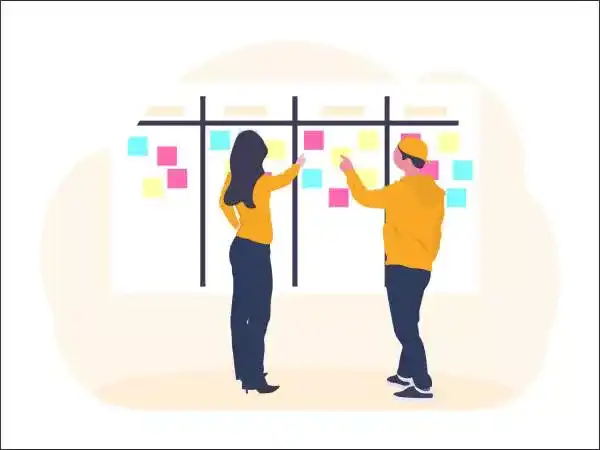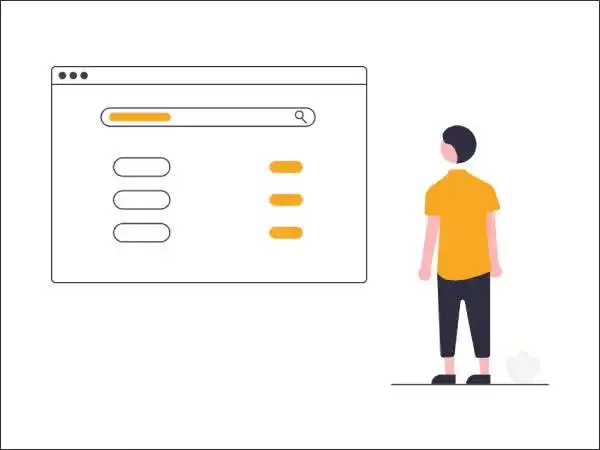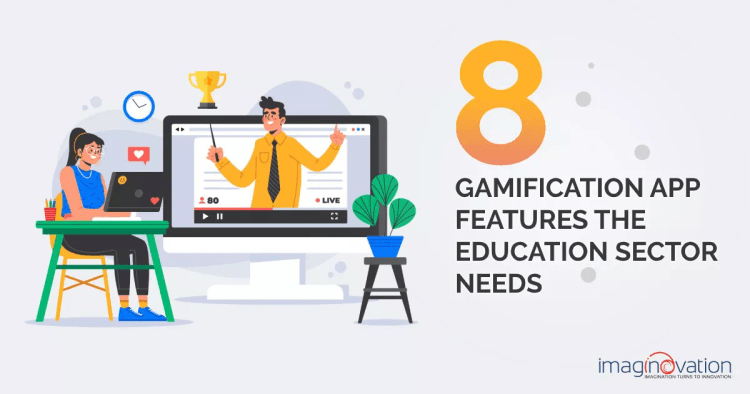To estimate the cost of building a website or an app, use our app cost calculator tool.
Gamification in education is gaining traction — and it’s easy to see why. Super Mario Bros, Pokémon Go, Clash of Clans, Candy Crush — the list goes on.
That feeling of beating opponents and earning rewards only makes the temptation stronger. If it weren’t, games like Final Fantasy and World of Warcraft wouldn’t be global phenomena.
Humans love to explore, compete, and win. There’s something deeply motivating about progressing from silver to gold status. And if you tap into that same drive in the classroom, learning suddenly becomes a lot more fun and engaging.
This is where gamification in education truly shines.
Gamification — A Learning Tool
“Tell me, and I’ll forget, show me, and I may remember, involve me, and I’ll understand.” – Confucius.
People learn best when they enjoy interactivity in real-life situations. Studies show that 90% of the information transmitted to the brain is visual. That’s why game-based learning and game-informed teaching are slowly becoming a new trend.
Take, for example, the toddlers. If you have a tablet with fun games installed, you save half of your efforts in training them. Also, your kids are the happiest minds to practice ABCs or rhymes effortlessly. Gamification in learning and teaching is much more than a vital training tool.
Let’s take a look at some of the interesting gamification facts in the education industry.
Gamified Learning — Some Interesting Stats to Know
The numbers below reaffirm that the trend of gamification in online education continues to rise:
- The global gamification in education market was valued at USD 1.55 billion in 2025 and is projected to reach USD 18.63 billion by 2033, growing at a CAGR of 36.4%. (Source)
- In 2024, the market was valued at USD 3.5 billion and is expected to reach USD 14.3 billion by 2030, with a CAGR of 26.6%. (Source)
- A recent report indicates that 67% of students find gamified learning more engaging and effective compared to traditional methods. (Source)
With the growing demand for gamification, many educators are investing in educational games. Gamification makes learning more fun and engaging.
Gamified educational apps inculcate the love of learning. This motivates students to reach their learning goals, achieve outcomes, and increase efficiency.
Also Read: Why Businesses Should Care About Gamification: A Statistical Perspective
How Gamification Can Benefit Your Students?
Let’s face it — traditional learning methods are often tedious, and classrooms are becoming increasingly unexciting. Keeping students engaged is a common challenge for teachers.
Gamified courses empower students to take control of their learning and develop a passion for self-directed education. These apps encourage brainstorming and mind mapping, thereby fostering creativity.
With a gamified online classroom, you can personalize each student’s learning path. You can also design the game setup to align with course objectives. If the curriculum includes lengthy assignments, they can be broken down into 10–15 minute activities for better engagement.

So, why should online educators and digital institutions invest in gamification? Here are some of the best advantages of implementing gamification in online learning:
1. Encourages Out-of-the-Box Thinking
A well-designed gamified course is more than just rules and structures. It focuses on the learning dimensions rather than the entertainment value.
Gamified lessons and exercises encourage in-depth thinking. Different game elements and rewards, such as leaderboard, badges, etc, encourage collaboration and out-of-the-box thinking.
2. Maximizes Attention Span
Game-based online courses keep students motivated and increase their attention span. They keep students with shorter attention spans hooked for long.
The goals, challenges at different levels, and rewards make the learning process more interesting. These activities restructure the thought process and increase brain function.
3. Encourages Accomplishment
Any activity or task can become boring if there’s no sense of accomplishment — and the same applies to education. When students don’t experience a sense of achievement, learning can lose its appeal.
Gamification helps keep students motivated over a longer period. Elements such as points, rewards, and gifts encourage learners to compete and put in more effort with each level. You can also award points for completing tasks on time, helping students develop better time management skills.
4. Creates A Healthy Competition
With gamification, you can create group goals for the students. You can create student groups and enroll them in a group competition. Incorporating group rewards, points, etc, will foster a healthy competition between student groups. This will also encourage teamwork.
Also Read: 6 Important Tips for Hiring A Game App Developer
Gamification Apps — The Use Case Scenarios
Today, millennials are turning towards online education to up their skills. Gamified educational apps that offer interactive learning activities are going mainstream.
As per the KPMG report, the online learning industry user base will hit 9.6 million by 2021. For 80% of students, learning would be more fun and productive if it were game-oriented. So, it’s important for educators to leverage gamification in higher education.
Let’s take a look at some of the real-life use case scenarios to understand how gamification could reshape the online education industry.

Scenario #1: You can use gamification in education to renovate your existing learning processes and make them more creative and engaging.
Scenario #2: Everyone loves games, but some people take their attachment to games to whole new levels. If the students have a background in gaming, it might be helpful to design your course in game-like experiences!
Scenario #3: If your content is dull and you can use gamification to re-invigorate the audience by including leaderboard, rewards, and points.
Scenario #4: You can gamify your online courses or online education platform to create simplified courses with a precise goal. Action rewards can bring in positive psychological changes and develop the learner’s competency level.
So, if you want to implement gamification in online courses, understanding the key features of a gamified education app might help you.
Features that Make the Best Gamified Education App
Let’s take a look at the list of the top gamification app features that could help you make learning easier, interactive, and more engaging.
1. Customized Gamification Templates
There’s no one-size-fits-all. You need to gamify your courses based on the unique objectives. Building templates can take quite a lot of time, effort, and tech skills. That’s where in-built gamification templates come into play.
The gamification templates allow you to customize interactivities such as contests, quizzes, or assessments. This is as simple as creating learning practices tailored to student behavioral needs.
To let your imagination run, built-in asset libraries help you create custom content that aligns with the course goals.
2. Interactive Progress Bars
Reaching new levels or stages is a euphoric moment for the learner. This is where progress bars help the learner to complete a task and reach the next level.
The idea is to help them move at their own pace across all levels of the game. Learners can revisit the previous levels of the course and aim for the next level of the badge.
3. Levels
Nothing motivates a student more than letting him/her set their own pace of learning. A gamified learning app allows the learner to switch to the levels as per his/her choice.
They can even track their progress levels and plan further. All you need is to customize the progress indicator within the gamification app.
4. Prizes, Rewards, and Recognitions
Which is better — hitting scores during a half-hour session or unlocking rewards after completing a task? Definitely the latter. Learners love rewards, badges, and gifts for completed tasks. Prizes and recognition motivate students and boost engagement.
5. Leaderboard
A leaderboard is a powerful tool to boost engagement. For a player, being visible to his peers on leaderboards develops a sense of pride and enthusiasm. It’s natural for every learner to work hard to compete and make it to the leaderboard.
6. Quizzes and Exercises
Until you tap into the learner’s basic desires, you can’t truly engage them. Unlike rule-based games like treasure hunts, adding quizzes or exercises helps draw learners in.
This not only boosts motivation but also enhances the overall learning experience. Just be careful not to over-gamify your app — too many gaming elements can take away from the core purpose of learning.
7. Customization Options
It’s all about playing — not just winning. A gamification app gives users full control to customize the game dynamics. New avatars, rewards, and gifts — students love them! Specialized games that align with the players’ personal preferences are every gamer’s delight.
It’s not always about creating games, but amplifying the motivational experiences in learning.
Build A Custom Gamified Learning App with Imaginovation
Playing a game is easy. But designing the game elements can make or break your online learning app. If you are looking for a rich blend of virtual environments from scratch, get in touch with us.
We, at Imaginovation, understand every unique business need. We help you create the best custom-tailored online learning platform with gamified features that can make learning much more interesting.











